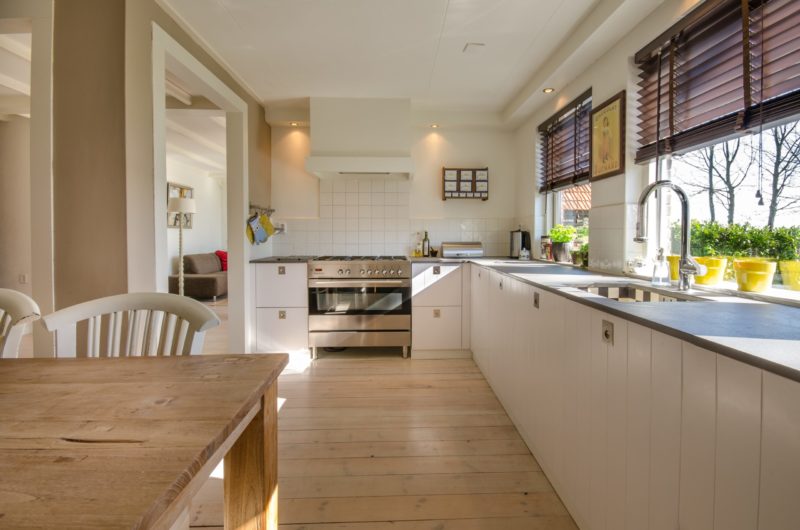On the A Tidy Mind blog, we aim to make home and life easier for our readers. We hope to empower you to take a methodical, organised approach. When it comes to choosing a boiler for your home or office, it can be confusing to know which one is right for you. With so many different types of boilers on the market, how do you know which one is best suited to your needs? For starters, you can check out free boiler resources e.g. from Heating Wise, and see what information they provide. They can be very helpful when it comes to choosing the right boiler for you. However, in this blog post, we’ll take a look at the different types of boilers available and provide tips on how to choose the right one for you.
System Boiler
One of the most common types of boilers that you will find today would be the system boiler. This type of boiler is commonly used for homes that have two or more bathrooms, or that use a lot of water during the month. The primary reason to use this boiler is if you have two or more bathrooms. It draws the water directly from the mains. However, it still uses an external hot water cylinder to store water that has been heated.
While you’ll be saving space since there isn’t any additional water tank, one of the drawbacks would be the fact that you still have to wait for the water to get hot. More than this, you’ll also have to wait for the hot water tank to fill, and the water that is stored in the tank can lose heat over time.
Combi Boiler
Another incredibly common type of boiler which is gaining popularity quite steadily is the combi boiler. The reason it is called a combi boiler is that it is a combination between a regular boiler and a system boiler. The primary reason why many people are opting to use combi boilers is the fact that it saves a lot of space.
This is because combi boilers heat water directly from the mains, meaning that no water needs to be stored in any sort of tank, which saves a lot of space. There are a few drawbacks to the Combi boiler. For example, more than one person might struggle to use this at the same time depending on water pressure, or if your house has low water pressure, to begin with, you might not get a steady stream of hot water.
Regular Boiler
Regular boilers or heat-only boilers are by far one of the oldest types of boilers and are primarily found in older houses. These boilers have lost popularity over the last few years, especially since they require a lot of space to operate. If you do choose to use a regular boiler, you need to be aware that you’ll need space for a hot water tank, cold water tank, expansion cistern, and heating controls.
One of the benefits of using a regular boiler would be the fact that the tanks can be very big, meaning that you can use multiple taps at the same time. A few drawbacks include water in the tank losing heat, meaning it’s not energy efficient since it’ll need to be heated again, as well as the fact that it requires a lot of space.
Floor Standing Boiler
Another type of boiler which isn’t as popular today as it was before would be the floor standing boiler. Floor-standing boilers aren’t a different type of boiler compared to regular, combi, or system boilers. Instead, they can be either a regular, combi, or system boiler, except for the fact that they are placed on the floor, rather than a wall.
A few reasons why you might consider getting a floor standing boiler would be if you already have an older model and you’re looking to upgrade, the walls in your home aren’t strong enough to support the weight of a wall-mounted boiler, or if you already have a room in your house that is unoccupied, which will fit a floor standing boiler.
Tips for Choosing a Boiler
When you need gas boiler installers in your home, there are several different factors to consider. From choosing the right type of boiler system to ensuring the installer you’re hiring is skilled and knowledgeable, it can become quite challenging. We want to fix that. We’re here to handle the hard work for you.
Knowing the different types of boilers is one-half of the equation. There are other factors that you’ll have to take into consideration when choosing a boiler. One of these factors is the cost. You will need to weigh up the pros and cons of choosing a cheaper boiler over a more expensive boiler; cheaper boilers tend to breakdown more often, which will require more repairs as well as the fact that they aren’t very energy efficient, so you’ll be paying a lot more in electricity consumption costs.
Another factor to take into consideration would be the warranty that is offered for the units. Unfortunately, boilers aren’t made to last forever and they will eventually break down. This means that you should ensure that the warranty that is offered with the unit will last long enough so that you won’t need to pay for the repairs or the replacement of the boiler.
If you’re serious about taking an organised approach to choosing a boiler, you may also be interested in these posts:
Organise Your Life – Choosing The Best Boiler For Your Home
Tips For Maintaining Heating & Cooling Systems

